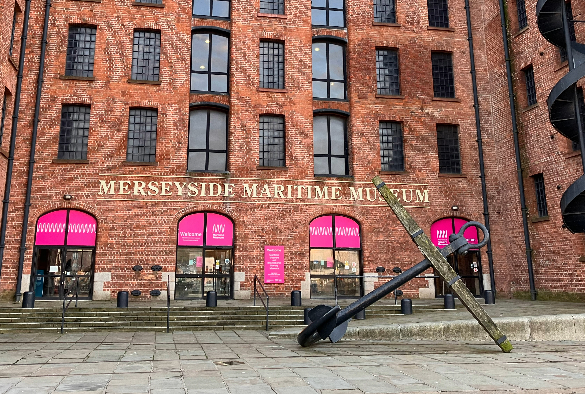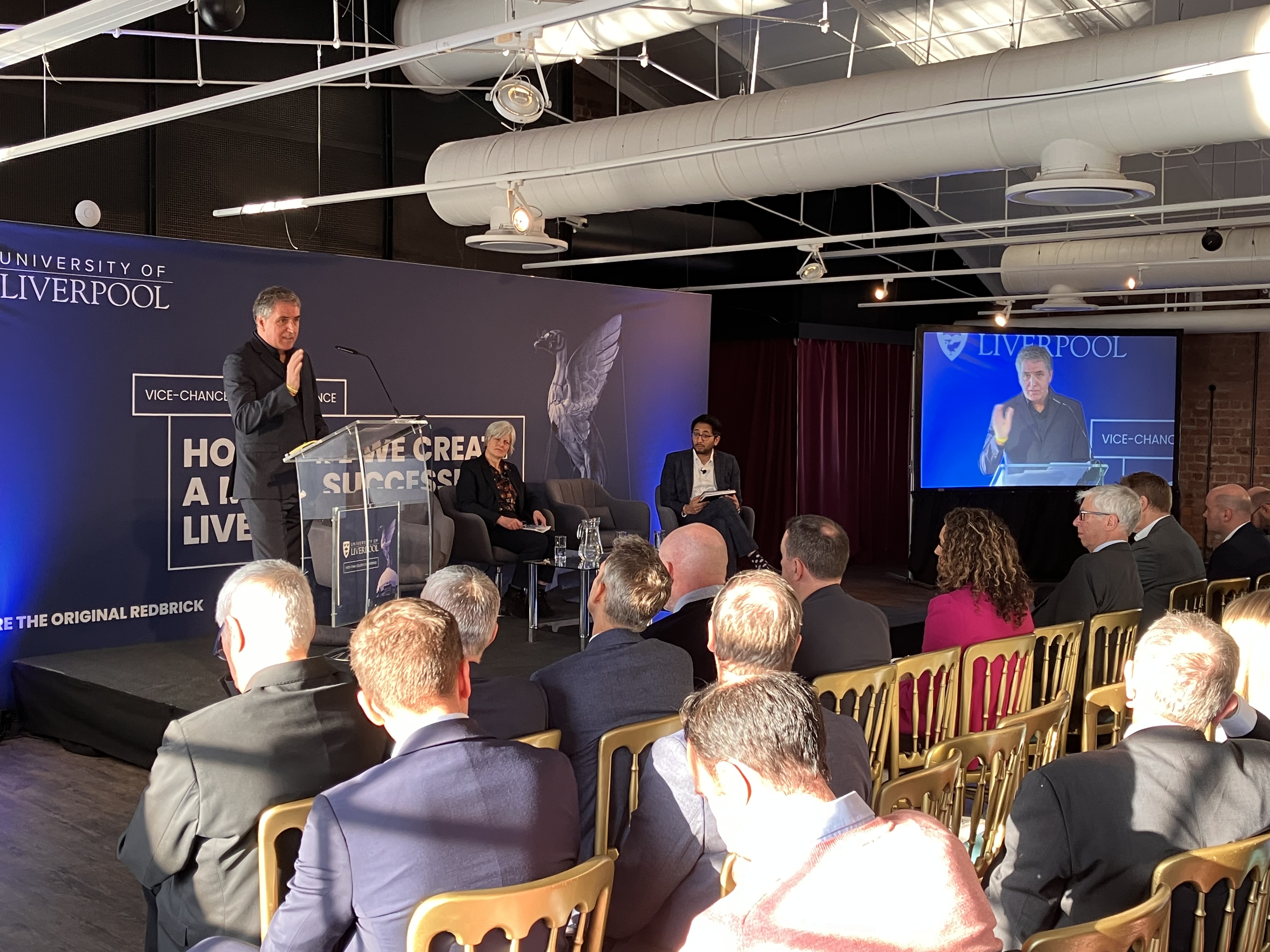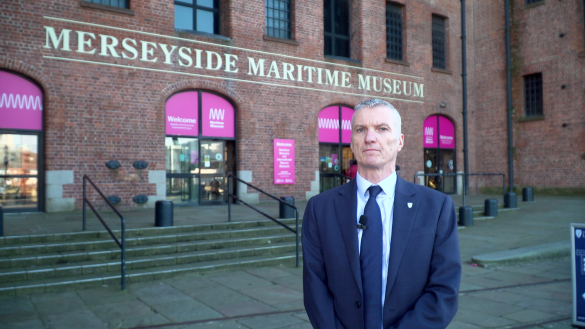
More than 170 key figures from Liverpool City Region organisations attended the University of Liverpool Vice Chancellor’s Conference today (28 November 2023) to hear local and national viewpoints on Liverpool’s future success.
The event saw Mayor Steve Rotheram launch the interim report from his Liverpool Strategic Futures Panel, which was set up to help chart the city’s path to stability and prosperity. He outlined priorities for Liverpool over next 10 years which included: rebooting regeneration; 21st century public service reform; and turbocharging the innovation economy.
Speaking on the report, he said: “Liverpool has all the ingredients of a fantastic, truly global city. Through the panel’s work, we want to help the city seize the major opportunities that lie ahead and ensure that all our residents can share in the benefits this will bring.” The Mayor was joined by Dharmesh Nayee from the Department for Levelling Up, Housing and Communities (DLUHC), whose Secretary of State, Michael Gove, has approved the report.

The event at the Maritime Museum also included a keynote speech from the Chief Executive Officer of the Royal Society of Arts, and former Chief Economist at the Bank of England, Andy Haldane CBE, on the national and local challenge in creating successful cities. Speaking about the plans for Liverpool, he said: “The past 30 years have seen a welcome rejuvenation here. However, the pace has slowed a little in the last 15 years and Liverpool’s regeneration is plainly unfinished business – that’s what makes today’s event so timely.”
Liverpool City Council Leader, Cllr Liam Robinson and Chief Executive, Andrew Lewis discussed how they will provide leadership for a successful Liverpool. Cllr Robinson said: “When we are given the opportunity, we can do some really significant things. We are already a world famous visitor destination but we also need more people to live, work and invest here. The future can be and must be really bright for Liverpool.”
Following this, four panel discussions with leading city figures explored different areas of opportunity:
How will we improve our economic performance?
Colin Sinclair, Chief Executive Officer, Knowledge Quarter Liverpool and Sciontec
Phil Hall, Mersey Division Port Director, Peel Ports Group
Brian Woodhouse, Business Director, Lucid Games
Jessica Bowles, Director of Strategic Partnerships and Impact, Bruntwood
How will we use development to create more successful communities?
Chris Capes, Director of Development, Peel L&P
Billy Hogan, Chief Executive Officer, Liverpool Football Club
Professor Louise Kenny CBE, Executive Pro Vice-Chancellor, University of Liverpool
Stephen Jones, Director, Core Cities UK
How will we improve the quality and performance of our city centre?
Bill Addy, Chief Executive Officer, Liverpool BID Company
Nuala Gallagher, Corporate Director City Development, Liverpool City Council
Lorna Rogers, Assistant Director of Mayoral Programmes, Liverpool City Region Combined Authority
Dr Jonathan Falkingham MBE, Founder and Creative Director, Urban Splash
What have we learned and what will we do next?
Katherine Fairclough, Chief Executive, Liverpool City Region Combined Authority
Laura Pye, Director, National Museums Liverpool

Professor Tim Jones
Concluding the event, University of Liverpool Vice-Chancellor Professor Tim Jones said: “I would like to thank all of today’s participants for their valuable and thought-provoking contributions.
“A number of priorities have been discussed today including the scale of our ambition – it is clear we need to think globally. Partnership between the public and private sector will also be critical to the city’s success in the coming years, and knowledge and innovation leaders like the University of Liverpool have a critical role to play.
“Inclusive growth to benefit all parts of our community is key, and the barriers to opportunity in our organisations and elsewhere must disappear. We’ve talked a lot and now it is time to deliver. It’s in our hands to make the changes, working together with local and central government and the private sector.”